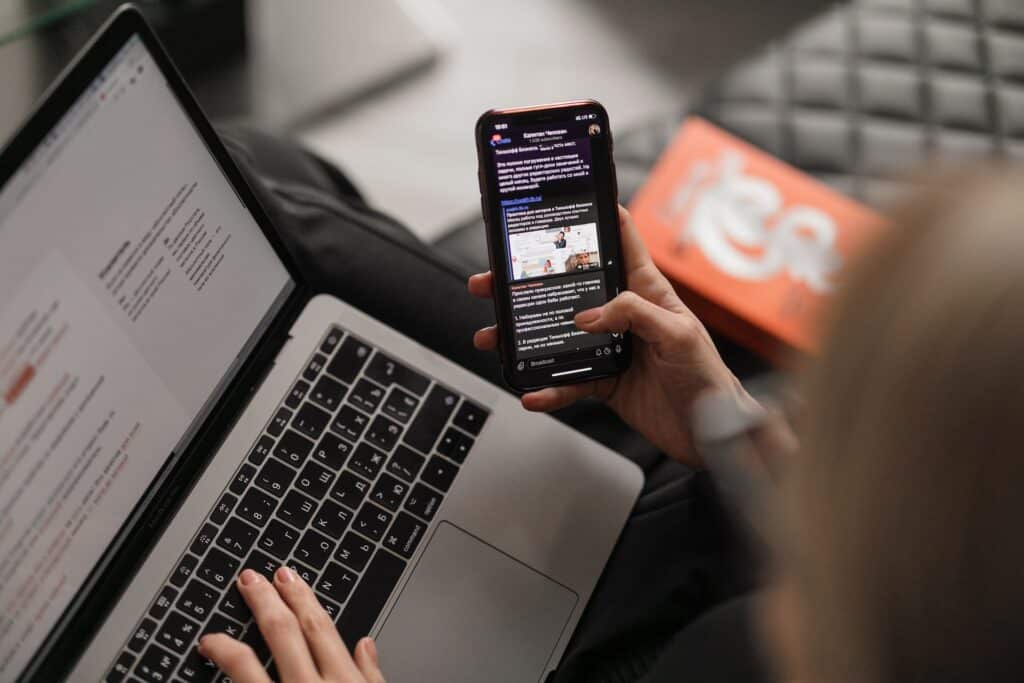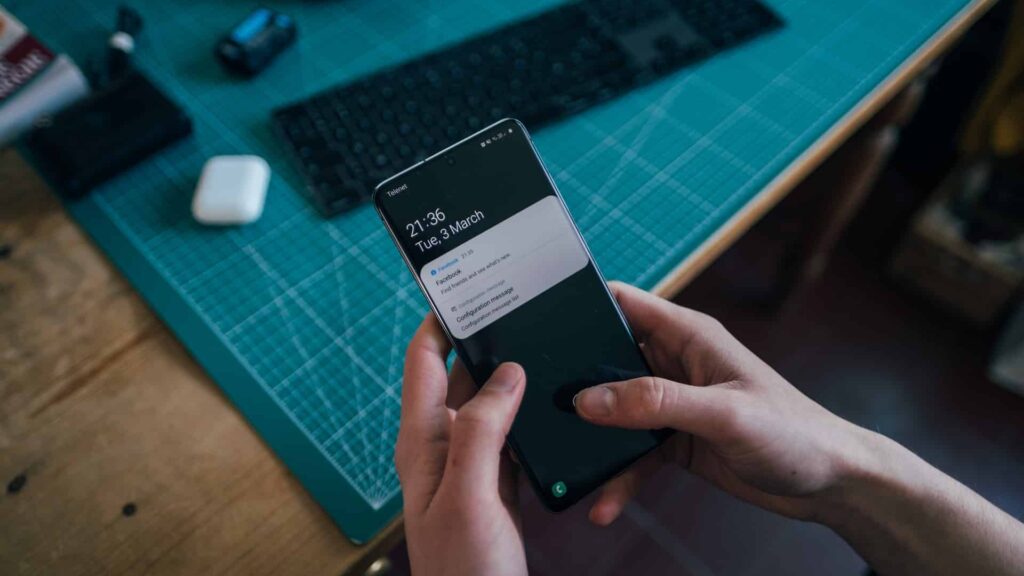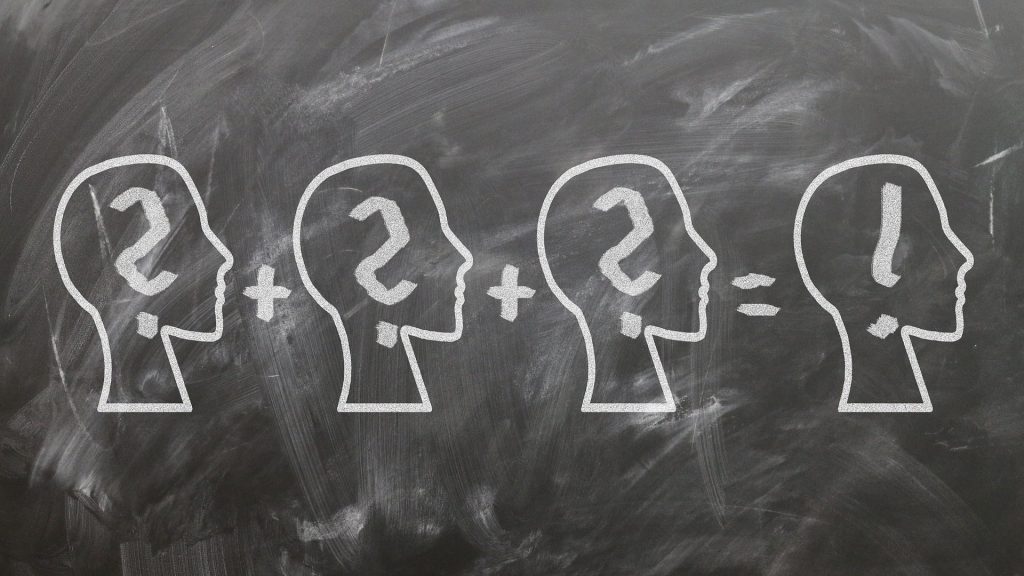Your Brain and Modern-Day Micro-Stressors: Notifications
We are so used to our phones vibrating all day that we now can experience what is called ‘Phantom Vibration Syndrome’ or ‘Ringxiety’. Initially, we were getting a little mini-high from knowing we had a new notification, but now notifications are a legitimate stress factor, and it is probably affecting every aspect of your life, from work to home life and family.
The Validation of Vibration
For many people, vibration = validation, very common in Gen Z, but no one is exempt. People are assigning their value to how many Text Messages come through while they were at work, feeling either really good or really bad when they check to see how many they got. And let’s not forget about FOMO! FOMO is a huge part of why we find it challenging to turn off all notifications! What if someone needs me? Or what if a big celebrity makes an announcement and I’m late to the party?
But the irony of it all is that these alerts that come through constantly on our phones undermine the idea of an alert, that something urgent needs to be attended to. We are becoming desensitised to immediacy while constantly feeling the pressure of needing to be available and open to the world!
This is taking a huge toll on so many aspects of our mental health and well-being. Dr Sanam Hafeez, a psychologist at Columbia University says “[Notifications] send our brain into overdrive, triggering anxiety and stress, and at the very least, hypervigilance, which is meant to protect us from predators, not the phone.”
The Anatomy of Notifications

When you receive a notification, your prefrontal cortex shuts off, which is where you do higher-order cognitive processing. And instead of this function, your body is receiving emergency signals from your brain. Sure, you may receive a temporary rush when you get a notification, but it isn’t necessarily a good rush!
When you receive a notification, what is your impulse? Are you able to continue with the task you were doing beforehand, or are you instantly reaching for your phone to check the alert? The reason that we struggle to keep going on the task we were doing before we got the text or Instagram notification is because of the Zeigarnik effect, which is a cognitive bias. The Zeigarnik effect makes us remember unfinished tasks easier than finished ones.
When a notification comes through, it creates a new To-Do list item in the back of your mind screaming at you in bright orange letters “Unfished Business!!!”. This bright orange alert in your mind makes it almost impossible to remain fully concentrated, and it will keep taking up precious mental real estate in your mind until you check it off. With every notification, another micro-task is added to the list of hundreds of micro-tasks, meaning that we end up spending the majority of our day, at the least, in low-level anxiety.
“I Think We Should Take a Break…”
While that isn’t a message you would want in notification form, it is the kind of conversation we should all be having with our toxic relationship with notifications! I understand that the thought of turning off all notifications can be scary and will probably instantly elicit a feeling of FOMO but consider that this doesn’t have to be the first dramatic step. There are plenty of other ways we can begin sorting out this complex relationship.
Start with putting physical distance between yourself and your phone, especially while you’re working. To add to the efficacy of this, turn on ‘Do Not Disturb’, and if you’re worried that you won’t be available in an emergency, add a selected contact or two, that can reach you even if ‘DND’ is turned on. Or use an app that will block your ability to use certain apps such as Instagram, Facebook, and WhatsApp, throughout the day.
If you aren’t sold on this idea, have a look at some of the stats within your ‘Screen Time Dashboard’, and that might just shock you into action. If you don’t take action, you are signing yourself off to a life of continually increasing anxiety and decreased productivity…and that is less than ideal.
Deep Performance and Notifications Don’t Mix
Social media and technology can often be quite a light-hearted topic, but their effects are serious business. We have got to take action! There’s a balance to be found, but I can guarantee the larger part of the population hasn’t found it, and if we don’t take action now, we may never find it and continually subscribe ourselves to a life of distraction and anxiety. Take a look at your Screen Time stats, look at what you use the most and when, and put measures in place to ensure that moving forward you are in your best state of mind and at peak mental clarity to achieve all that needs to be done throughout the day.
References –
Katsha, H. (2020). In defence of turning all your notifications off. Refinery29. https://www.refinery29.com/en-gb/2020/08/9929778/notifications-causing-anxiety
Miah, C. Y. (2022). Phantom Vibration Syndrome. DermNet. https://dermnetnz.org/topics/phantom-vibration-syndrome#:~:text=Phantom%20vibration%20syndrome%20(PVS)%20refers,vibration%20that%20is%20not%20present
Saad, S. K. (2019). Your brain does a wild thing every time your phone pings you. Bustle. https://www.bustle.com/p/what-happens-to-your-brain-when-you-get-a-phone-notification-19256076
Tech Detox Mom. (2023). How phones hack our brains: anatomy of a notification. Tech Detox. https://www.techdetoxbox.com/how-notifications-hack-our-brain/
Tu, J. (2019). Notifications are spiking our stress levels. Women’s Agenda. https://womensagenda.com.au/latest/notifications-are-spiking-our-stress-levels/


